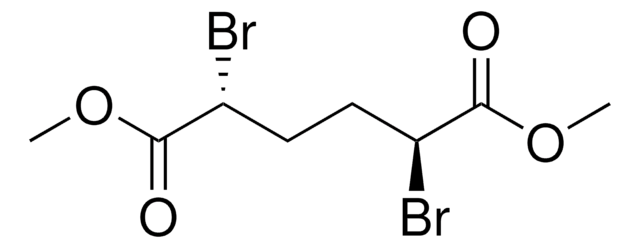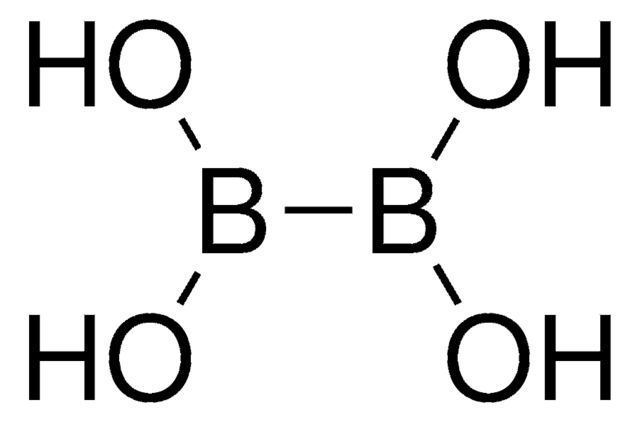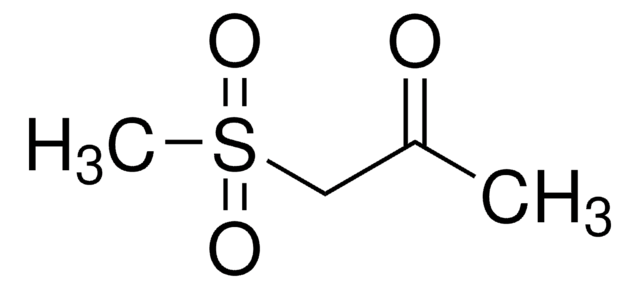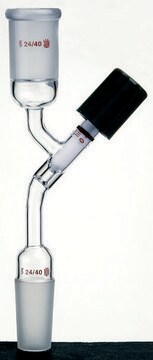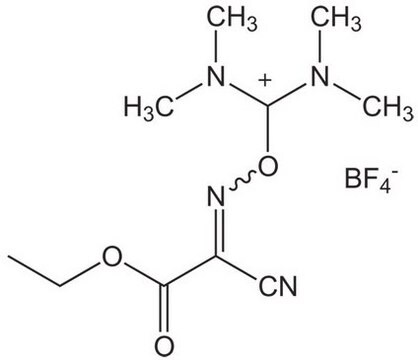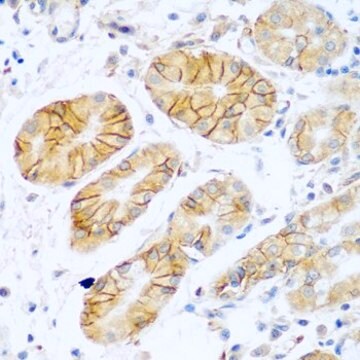900607
2,5-Dibromohexanediamide
≥95%
Sinónimos:
2,5-Dibromoadipamide, DBHDA
Iniciar sesiónpara Ver la Fijación de precios por contrato y de la organización
About This Item
Fórmula empírica (notación de Hill):
C6H10Br2N2O2
Número de CAS:
Peso molecular:
301.96
Número MDL:
Código UNSPSC:
12352200
NACRES:
NA.22
Productos recomendados
Nivel de calidad
Análisis
≥95%
formulario
solid
temp. de almacenamiento
2-8°C
InChI
1S/C6H10Br2N2O2/c7-3(5(9)11)1-2-4(8)6(10)12/h3-4H,1-2H2,(H2,9,11)(H2,10,12)
Clave InChI
PLSXNAQEJOGNKQ-UHFFFAOYSA-N
Aplicación
This compound has been shown to be a useful reagent for the conversion of cysteine to dehydroalanine (DHA) in peptides or proteins. This enables chemical mutagenesis in which DHA can be efficiently reacted with iodide building blocks to add various natural and unnatural side chains on proteins. It was also shown that other modifications could be added through DHA such as phosphorylation, methylation, and glycosylation. In other research it was shown that DHA can be used to make ubiquitin conjugates that have a bond that mimics the native isopeptide bond.
Palabra de señalización
Warning
Frases de peligro
Consejos de prudencia
Clasificaciones de peligro
Eye Irrit. 2 - Skin Irrit. 2
Código de clase de almacenamiento
11 - Combustible Solids
Clase de riesgo para el agua (WGK)
WGK 3
Punto de inflamabilidad (°F)
Not applicable
Punto de inflamabilidad (°C)
Not applicable
Certificados de análisis (COA)
Busque Certificados de análisis (COA) introduciendo el número de lote del producto. Los números de lote se encuentran en la etiqueta del producto después de las palabras «Lot» o «Batch»
¿Ya tiene este producto?
Encuentre la documentación para los productos que ha comprado recientemente en la Biblioteca de documentos.
Posttranslational mutagenesis: A chemical strategy for exploring protein side-chain diversity.
Wright TH, et al.
Science, 4(354), 6312-6312 (2016)
Methods for converting cysteine to dehydroalanine on peptides and proteins.
Chalker JM, et al.
Chemical Science, 2, 1666-1676 (2011)
Protein ubiquitination via dehydroalanine: development and insights into the diastereoselective 1,4-addition step.
Meledin R, et al.
Organic & Biomolecular Chemistry, 14(21), 4817-4823 (2016)
Philip R Lindstedt et al.
Cell chemical biology, 28(1), 70-77 (2020-11-21)
Great advances have been made over the last four decades in therapeutic and diagnostic applications of antibodies. The activity maturation of antibody candidates, however, remains a significant challenge. To address this problem, we present a method that enables the systematic
Nuestro equipo de científicos tiene experiencia en todas las áreas de investigación: Ciencias de la vida, Ciencia de los materiales, Síntesis química, Cromatografía, Analítica y muchas otras.
Póngase en contacto con el Servicio técnico